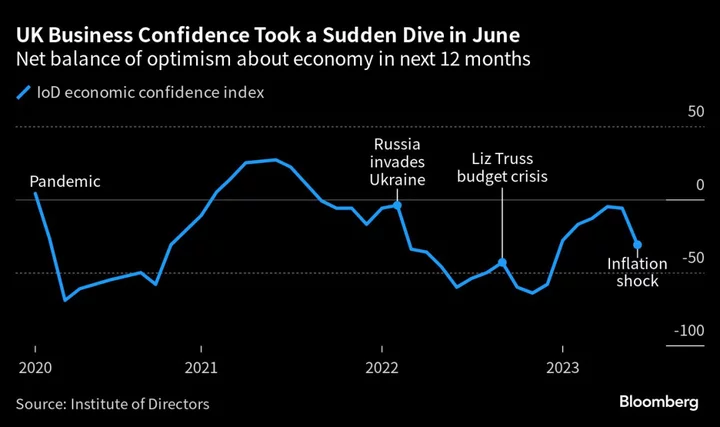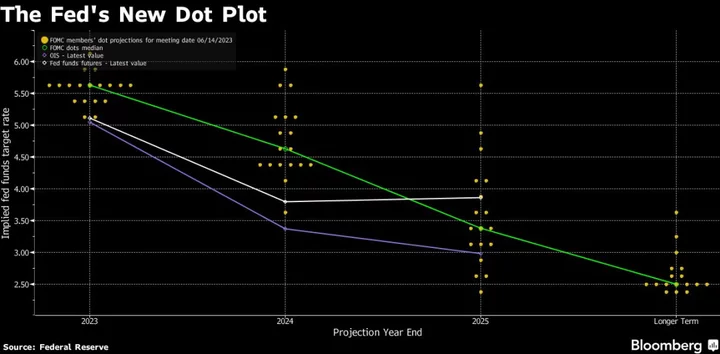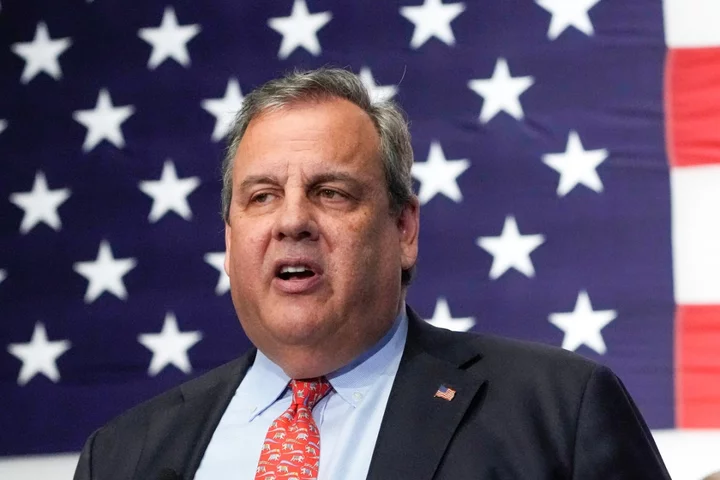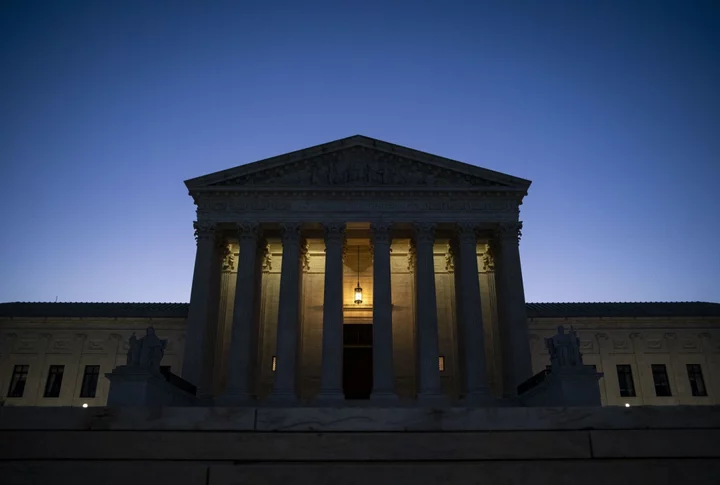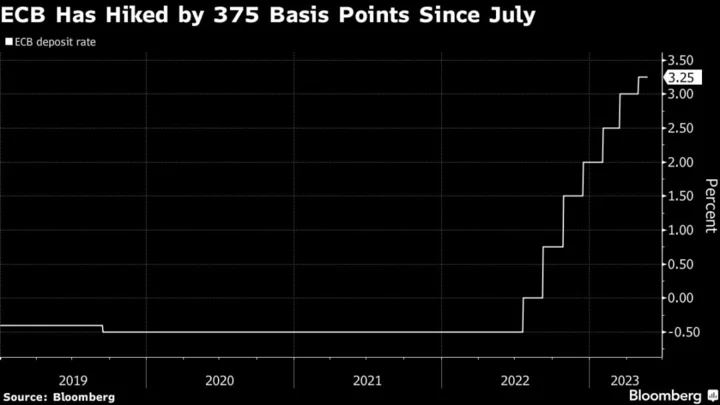UK business confidence suffered a sudden collapse in June as fears mounted of a renewed push by the Bank of England to tame inflation.
The Institute of Directors said its economic confidence index slumped to minus 31 from minus 6 in May, the lowest level since December and the aftermath of last autumn’s political turmoil.
It was the biggest drop since the start of Russia’s invasion of Ukraine, which sent energy prices soaring.
The survey was conducted during the second half of June when a surge in mortgage rates intensified, inflation came in higher than forecast for a fourth straight month and the BOE shocked markets by increasing interest rates by half a percentage point to 5%.
Investors are now betting the BOE will boost its key lending rate to as high as 6.25% by December, a jump that threatens to tip the UK economy into recession.
“The surge in optimism and investment plans that we’ve witnessed in recent months came to a shuddering halt in June as business leaders took stock of worse-than-expected inflation data and what that means for interest rates and prospects for the economy overall,” said Kitty Ussher, chief economist at the IoD.
“Many investment plans that had only recently been dusted down are now being put on hold again.”
The survey shows how quickly the economic outlook has darkened in the UK. Confidence indicators had been improving before markets and the central bank were rattled by the inflation readings for April and May.
The IoD said there was increasing concern over sticky prices and their impact on the economy. A third of directors who said they were pessimistic about the outlook cited inflation as their main worry, while 19% blamed falling customer demand. The deteriorating picture also caused a pullback in investment intentions.
The UK has managed to avoid a recession that was once widely predicted. However, concerns are mounting again as financial conditions tighten.
Bloomberg Economics now expects the UK to fall into a shallow slump by the end of year, even assuming rates peak at 5.75%. The levels being priced in by markets would lead to a deeper contraction.

